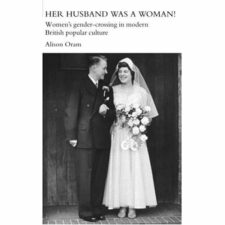The Second World War saw France defeated and subsequently occupied by the Germans. Young girls’ literary responses to the period – their diaries and memoirs – serve a dual purpose: they convey their own personal story whilst providing a historical account of the period. However, their accounts reveal that these two aspects were not mutually exclusive, as the circumstances of this specific historical period had a profound influence on their adolescence. Their writings disclose how, to a certain extent, they were just ordinary young girls who experienced typical teenage angst about their relationships with friends and family members. However, spending their formative years in an occupied country meant that they faced different challenges to teenagers growing up in peacetime.
Micheline Bood, a fourteen-year-old Catholic schoolgirl had to cope with both her father and brother being mobilised, leaving her in a totally female household. Her opening diary entry in 1940 reveals her state of mind as it reads: ‘This time, it’s decided! I mean it, I’m going to write my diary as I have nobody else to confide in’. This sentiment is echoed by Denise Domenach-Lallich, a fifteen-year-old Catholic schoolgirl, who has been forced to leave Lyon with her mother and sisters to stay with her grandparents in the countryside. Her first entry in November 1939 reads:
Today, the 10th November, I am beginning my diary. It does seem a bit stupid when I think that I am doing exactly the same thing as young girls in the past. But I am isolated at the moment because of the war and I need to confide in somebody about my sorrow, and that somebody will be my exercise book.
When interviewed at the age of eighty, Denise revealed that, ‘My exercise book was my confidant, my safety valve. I needed to write in order to distance myself from events, from my emotion’.
Having an absent relative often resulted in more pressure being felt by those left behind which compounded the sense of isolation felt by young girls when their remaining parent seemingly vented their frustration on the adolescent. This had detrimental consequences on the mother-daughter relationship, which is typically fraught during adolescence under normal circumstances but was compounded by the fact that households were now predominantly female. Micheline Bood recounted how she often heard her mother question what she had done to deserve such a daughter. She also commented on how her relationship with her mother had evolved to the extent that she used to confide in her about everything but this was no longer the case. Her one consolation was writing her diary.
Similarly, Denise Domenach-Lallich felt that her mother was distant towards her as she failed to live up to her expectations: ‘She spends her time telling me off; I think she is disappointed because she wanted me to be like her, for me to become a good housewife. It’s no good expecting me to spend my life waiting on the men of the house. I have more interesting things to do’. Flora Groult, a sixteen-year-old Catholic schoolgirl in 1940, found that staying with her grandparents was not the same as being in her own home. She disapproved of the formal language used by her grandmother to address her and her sister, the renowned feminist author Benoîte Groult, and felt that she always kept a certain distance from them, verging on coldness. She states: ‘Apart from the term “mesdemoiselles” which she always uses to approach us, as if to maintain a certain distance even from her close relatives, she often uses the most awful words to describe a situation which ends up making it sound even worse than it is’. This, of course, could simply be attributable to the fact that different generations use different terminology to express their views and prefer to address others in a formal manner rather than an inherent desire to keep her grandchildren at arm’s length.
In these examples, adolescent angst manifests itself in the young girl feeling alone, isolated and resentful. Rather than gaining freedom as they grew up, they found themselves having more constraints placed on them due to the circumstances of war. However, these examples also show a conflict between them wanting more independence but also wanting more attention from the adults around them. The absence of male relatives, combined with the friction caused by the added pressure exerted on those left behind, meant that family life was often far from harmonious and rather than uniting the remaining family members it often further divided them. However, the reasons given by young girls for starting to keep a diary, combined with the tone of the letters they wrote to the missing father or brother, demonstrate a yearning for the closeness that the war had caused them to lose.
Victoria Harrison of the University of Birmingham explores adolescent angst in WW2 in autumn edition of the Women’s History Magazine. Find out more here.

Thank you for a very interesting post, which gave me helpful insight into the heroine of my current novel – a teenage farmgirl living in Occupied France.